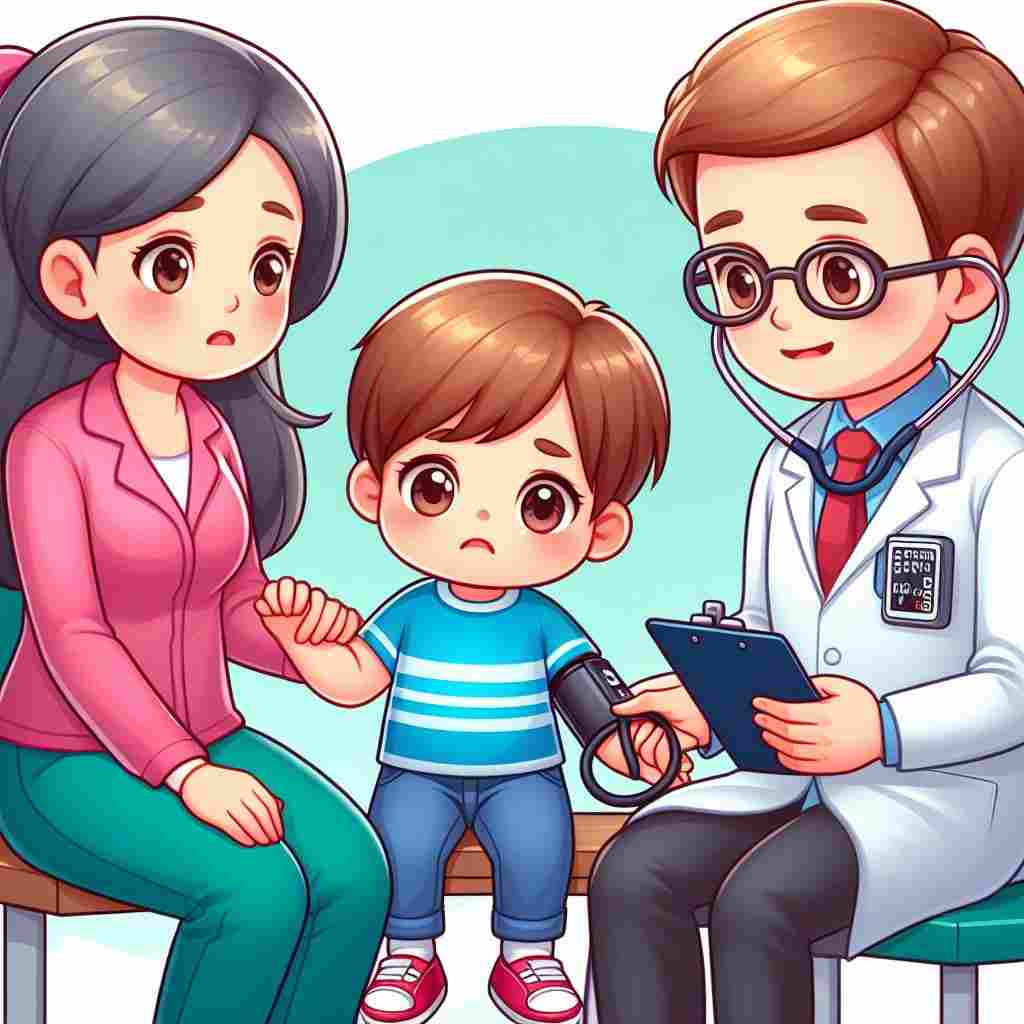
Hypertension in Children: Causes, Symptoms, and Treatment
Have you ever wondered if children can develop high blood pressure, or is it only a concern for adults? Well, the truth is that hypertension, commonly known as high blood pressure, is not limited to adults. Children can also be affected by this condition, albeit in rarer instances. In this article, we will explore the causes, symptoms, and treatment of hypertension in children, shedding light on this often overlooked health issue.
What is Hypertension in Children?
Hypertension is a medical condition characterized by elevated blood pressure levels. It occurs when the force of blood against the walls of the arteries is consistently too high. While high blood pressure is more commonly associated with adults, it can also affect children, although it is relatively rare.
Causes of Hypertension in Children
- Primary Hypertension: This form of hypertension, also known as essential hypertension, does not have a specific cause. It is most commonly seen in older children and teenagers, and it tends to run in families. Genetic factors, as well as lifestyle choices such as poor diet and lack of physical activity, can contribute to primary hypertension in children.
- Secondary Hypertension: Unlike primary hypertension, secondary hypertension in children is caused by an underlying medical condition. Common causes include kidney problems, heart defects, hormonal disorders, and certain medications. Secondary hypertension often appears suddenly and is more prevalent in younger children.
Symptoms of Hypertension in Children
Identifying hypertension in children can be challenging, as they may not exhibit obvious symptoms. However, it is crucial to be vigilant and look out for the following signs:
- Headaches: Recurring headaches, especially at the back of the head, can be a warning sign of high blood pressure in children.
- Fatigue: Children with hypertension may frequently feel tired or lack energy, even after getting enough sleep.
- Dizziness: If your child experiences dizziness or lightheadedness without any apparent cause, it could be due to hypertension.
- Chest Pain: Unexplained chest pain or discomfort can be a symptom of high blood pressure in children. However, it is essential to rule out any other underlying conditions that may be causing the chest pain.
- Shortness of Breath: Difficulty breathing or shortness of breath, especially during physical activities, can be an indication of high blood pressure in children.
- Frequent Nosebleeds: While nosebleeds are common in children, frequent or severe nosebleeds may be a sign of high blood pressure.
It is important to note that these symptoms can also be attributed to various other health issues. If you notice these signs in your child, it is crucial to consult with a healthcare professional for an accurate diagnosis.
Diagnosis of Hypertension in Children
Diagnosing hypertension in children involves multiple steps to ensure accurate results. The initial evaluation typically includes:
- Blood Pressure Measurement: A healthcare professional will measure your child’s blood pressure using a blood pressure cuff. This is a non-invasive and painless procedure.
- Multiple Readings: To confirm a diagnosis of hypertension, blood pressure measurements should be taken on multiple occasions. This helps rule out the possibility of an isolated high reading caused by anxiety or other factors.
- Physical Examination: A comprehensive physical examination will be conducted to assess other potential underlying causes of hypertension.
- Medical History: Your child’s medical history, including family history of hypertension, will be evaluated to determine the likelihood of primary or secondary hypertension.
Additional tests, such as blood tests, urine tests, or an echocardiogram, may be ordered based on the healthcare professional’s assessment.
Treatment of Hypertension in Children
Managing hypertension in children involves a combination of lifestyle changes and, in some cases, medication. The primary goals of treatment are to lower blood pressure, prevent complications, and promote overall cardiovascular health.
- Lifestyle Modifications: Encouraging your child to adopt a healthy lifestyle is crucial in managing hypertension. This includes:
- Healthy Diet: Implementing a balanced diet low in sodium and rich in fruits, vegetables, whole grains, and lean proteins can help reduce blood pressure.
- Regular Exercise: Encouraging regular physical activity, such as playing sports or engaging in active play, can help lower blood pressure and maintain a healthy weight.
- Weight Management: If your child is overweight, achieving and maintaining a healthy weight can significantly lower blood pressure.
- Stress Management: Teaching stress management techniques, such as deep breathing exercises or engaging in hobbies, can help reduce stress levels and subsequently lower blood pressure.
- Medication: In some cases, lifestyle modifications may not be sufficient to control hypertension in children. If necessary, healthcare professionals may prescribe medication to help manage blood pressure. The type of medication and dosage will depend on the child’s age, overall health, and underlying cause of hypertension.
It is important to remember that treatment plans for hypertension in children should be individualized based on each child’s unique circumstances. Regular follow-up visits with healthcare professionals are crucial to monitor blood pressure levels and make necessary adjustments to the treatment plan.
Takeaway Message
Hypertension in children, though relatively rare, is a condition that should not be overlooked. Being aware of the causes, symptoms, and treatment options is essential in ensuring early diagnosis and appropriate management. By implementing lifestyle modifications and working closely with healthcare professionals, we can strive to prevent complications and promote optimal cardiovascular health in children.
If you suspect that your child may have hypertension, it is important to seek medical advice promptly. Remember, knowledge is power, and by educating ourselves about this often misunderstood condition, we can make a positive impact on the health and well-being of our children.
